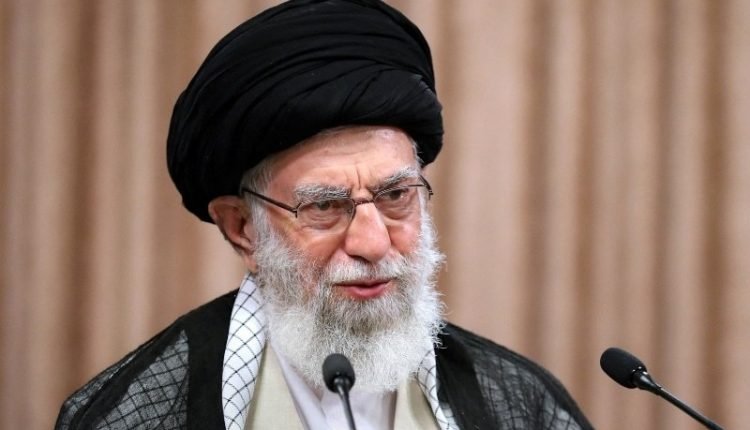Afzal Hayat Tareen
Introduction:
Mahrang Baloch is a female Baloch human rights activist from Balochistan, Pakistan. She claims to fight against the oppression and injustice faced by the Baloch people, such as unlawful enforced disappearances and extrajudicial killings by the authorities.
She was born in 1993 in a Baloch Muslim family that originated from Kalat, Balochistan. She has five sisters and one brother. She pursued her medical education at Bolan Medical College and became a doctor. Her father, Abdul Gaffar Langove, was a labourer, a WAPDA employee, and a Baloch nationalist who later joined the Balochistan Liberation Army, a militant group that operates from Afghanistan against the federation of Pakistan. Later on, her family moved from Quetta to Karachi for her mother’s medical treatment.
Her life changed when her father was allegedly abducted by security forces in Karachi on December 12, 2009, while he was on his way to the hospital. She was only 16 years old then, but she did not hesitate to raise her voice against his abduction. She became a part of the student resistance movement and demanded the release of her father and other missing persons. Allegedly, her father’s body was found in July 2011, with signs of torture.
Her brother also faced a similar fate when he was abducted in December 2017 and detained for more than three months. Since then, she has emerged as one of the prominent leaders of the Baloch resistance movement. She has challenged the government’s exploitation of Balochistan’s natural resources and demanded the rights of the Baloch people. In 2020, she led a group of students who protested against the proposed abolition of the quota system at Bolan Medical College, which ensured the representation of students from remote areas of the province. The group’s activism and hunger strikes forced the government to cancel the policy change.
Mahrang Baloch: A Voice for Balochistan’s Daughters:
Mahrang Baloch, the name echoes through the rugged mountains of Balochistan, echoing tales of resilience, courage, and unwavering pursuit of justice. Born in 1991, her life has been intertwined with the turbulent history of her land, etched with stories of loss and oppression. Yet, from the ashes of tragedy rose a warrior, a woman who would become the voice for countless silenced daughters of Balochistan.
Her father and brother were killed. However, these were not isolated incidents. Enforced disappearances, extrajudicial killings, and governmental-sanctioned violence are deeply woven into the fabric of Balochistan’s reality according to many Baluch nationalists. But for Mahrang, this became a defining point, the spark that ignited the fire of resistance within her.
Fueled by an unwavering resolve to seek justice for Zahid (brother) and countless others, Mahrang emerged as a leader. In 2023, she became the face of the Baloch Yakjehti Committee (BYC), a human rights organization fighting against the injustices suffered by the Baloch people. Under her leadership, the BYC took a bold step: a Long March for Justice, a 1,600-kilometer journey from the southern tip of Balochistan to Islamabad, the capital of Pakistan.
This wasn’t just a march; it was a powerful statement, a beacon of hope for the voiceless. Hundreds of women, their faces etched with grief and determination, walked alongside Mahrang. Mothers whose sons vanished, daughters searching for their fathers, women carrying the weight of generations of suffering – they united under the banner of the BYC, their voices rising in unison, demanding an end to the human rights violations.
The Long March faced immense challenges. Security forces tried to impede their progress, threats and intimidation became routine, and the harsh physical terrain tested their resolve. Yet, they walked on, their voices growing louder with each passing mile. They stopped at villages along the way, sharing their stories, raising awareness, and gathering support. The march became a platform for the unheard, a testament to the indomitable spirit of the Baloch people.
As the Long March reached Islamabad, thousands joined the protest. Mahrang’s voice, honed by years of grief and fueled by a burning desire for justice, resonated through the streets. She spoke of Zahid, of the countless disappeared, of the mothers robbed of their sons, of the daughters left fatherless. The world listened, witnessing the raw pain and unflinching courage of a woman who refused to be silenced.
The Long March didn’t achieve its immediate objective: justice for the Baloch people remains elusive. Yet, it left an indelible mark. It awakened the world to the plight of Balochistan, it amplified the voices of the marginalized, and it proved that even in the face of unimaginable hardship, the human spirit of resistance thrives.
Importantly, the voices of the Baluch were listened to by the people of Pakistan, especially the people of Punjab. The Pakistani youth praised her courage and determination of her. The violent movement could not create that impact on the rights of the Baluch people, which the Mahrang Baloch achieved through peaceful protest and long march. The Pakistani social media also echoed the voice of Mahrang Baluch.
Mahrang Baloch’s story is not just hers; it is the story of countless courageous women who continue to fight for their land, their loved ones, and their right to a life free from fear and oppression. The Long March may have ended, but the journey for justice continues. Mahrang’s unwavering voice, echoing through the Baloch mountains, serves as a reminder that even the darkest nights cannot extinguish the flames of hope and defiance.
Pakistan is a federation, and the rights of all communities are protected in the constitution of Pakistan. Any person or community which respects the constitution of Pakistan must listen, and their legal and constitutional demands should be upheld. The democratic and political process should include all the dissenting voices. Lastly, Mahrang Baloch has emerged as a new face among the traditional chieftains and others for the rights of the Baluch people.
It is definitely the rise of a new face: Mahrang Baluch
Please, subscribe to the YouTube channel of republicpolicy.com
















